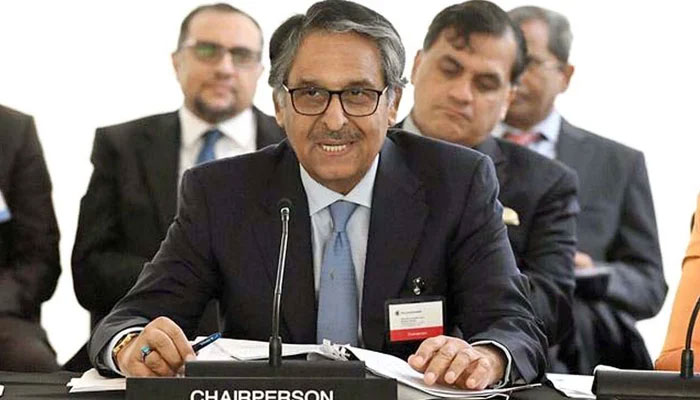‘South Asian countries victim of terrorism from neighbours’
Islamabad:Former Foreign Minister Jalil Abbas Jilani has said that Pakistan was not alone in suffering from state-sponsored terrorism, other South Asian states including Sri Lanka, Bangladesh and Nepal were also victims of terrorism inflicted on their lands from the common neighbour.
Mr Jilani was speaking as chief guest at the launch of “Critical issues facing South Asia: politics, security and non-traditional challenges” organised here by Institute of Strategic Studies (ISS).
Mr Jilani noted that the subjects forming part of the book included myriad dimensions of Pakistan-India relations and a number of cross-cutting regional issues which were very relevant and had currency in discussions among diplomatic as well as political circles. In the context of terrorism, for instance, he highlighted the salience of nuclear issues between Pakistan and India and, recalling the firing of a nuclear-capable missile from India in March 2022, stressed that it could have resulted in a larger conflagration if Pakistan had not reacted with tremendous restraint.
He underlined that for resolving Pakistan-India disputes, and for ensuring durable peace in the region, it was essential to revive the dialogue process, as disengagement could ignite serious conflict in a nuclearised South Asia. Specifically, he recommended resumption of Pakistan-India dialogue, revival of discussions on all issues -- from the core Jammu & Kashmir dispute to Siachen, Sir Creek and terrorism, revival of Kashmir-related CBMs, respect for and adherence to the Indus Water Treaty in letter and spirit, establishment of permanent mechanism to address nuclear-related issues and revival of the SAARC process for regional cooperation. Dr Asma Shakir Khwaja, Executive Director, CISS, Muzaffarabad, said that the innovative thoughts and critical issues have the potential to turnaround geopolitical landscape of a most populous, yet least connected region like South Asia.
-
 China Confirms Visa-free Travel For UK, Canada Nationals
China Confirms Visa-free Travel For UK, Canada Nationals -
 Inside Sarah Ferguson, Andrew Windsor's Emotional Collapse After Epstein Fallout
Inside Sarah Ferguson, Andrew Windsor's Emotional Collapse After Epstein Fallout -
 Bad Bunny's Star Power Explodes Tourism Searches For His Hometown
Bad Bunny's Star Power Explodes Tourism Searches For His Hometown -
 Jennifer Aniston Gives Peek Into Love Life With Cryptic Snap Of Jim Curtis
Jennifer Aniston Gives Peek Into Love Life With Cryptic Snap Of Jim Curtis -
 Prince Harry Turns Diana Into Content: ‘It Would Have Appalled Her To Be Repackaged For Profit’
Prince Harry Turns Diana Into Content: ‘It Would Have Appalled Her To Be Repackaged For Profit’ -
 Prince William's Love For His Three Children Revealed During Family Crisis
Prince William's Love For His Three Children Revealed During Family Crisis -
 Murder Suspect Kills Himself After Woman Found Dead In Missouri
Murder Suspect Kills Himself After Woman Found Dead In Missouri -
 Sarah Ferguson's Plea To Jeffrey Epstein Exposed In New Files
Sarah Ferguson's Plea To Jeffrey Epstein Exposed In New Files -
 Prince William Prepares For War Against Prince Harry: Nothing Is Off The Table Not Legal Ways Or His Influence
Prince William Prepares For War Against Prince Harry: Nothing Is Off The Table Not Legal Ways Or His Influence -
 'How To Get Away With Murder' Star Karla Souza Is Still Friends With THIS Costar
'How To Get Away With Murder' Star Karla Souza Is Still Friends With THIS Costar -
 Pal Reveals Prince William’s ‘disorienting’ Turmoil Over Kate’s Cancer: ‘You Saw In His Eyes & The Way He Held Himself’
Pal Reveals Prince William’s ‘disorienting’ Turmoil Over Kate’s Cancer: ‘You Saw In His Eyes & The Way He Held Himself’ -
 Poll Reveals Majority Of Americans' Views On Bad Bunny
Poll Reveals Majority Of Americans' Views On Bad Bunny -
 Wiz Khalifa Thanks Aimee Aguilar For 'supporting Though Worst' After Dad's Death
Wiz Khalifa Thanks Aimee Aguilar For 'supporting Though Worst' After Dad's Death -
 Man Convicted After DNA Links Him To 20-year-old Rape Case
Man Convicted After DNA Links Him To 20-year-old Rape Case -
 Royal Expert Shares Update In Kate Middleton's Relationship With Princess Eugenie, Beatrice
Royal Expert Shares Update In Kate Middleton's Relationship With Princess Eugenie, Beatrice -
 Andrew Mountbatten-Windsor’s Leaves King Charles With No Choice: ‘Its’ Not Business As Usual’
Andrew Mountbatten-Windsor’s Leaves King Charles With No Choice: ‘Its’ Not Business As Usual’




